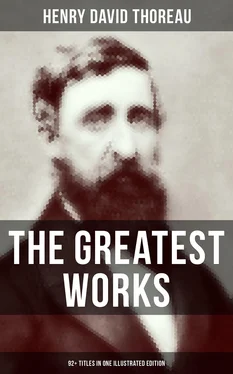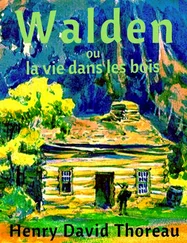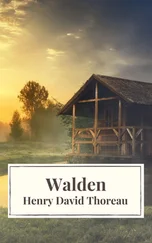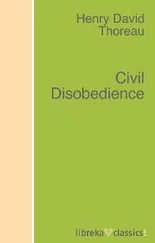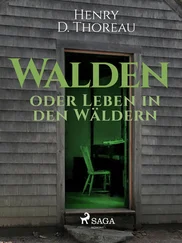the Indians."
The stones of some others of the company stand around the common grave with their separate inscriptions. Eight were buried here, but nine were killed, according to the best authorities.
"Gentle river, gentle river,
Lo, thy streams are stained with gore,
Many a brave and noble captain
Floats along thy willowed shore.
"All beside thy limpid waters,
All beside thy sands so bright,
Indian Chiefs and Christian warriors Joined in fierce and mortal fight."
It is related in the History of Dunstable, that on the return of Farwell the Indians were engaged by a fresh party which they compelled to retreat, and pursued as far as the Nashua, where they fought across the stream at its mouth. After the departure of the Indians, the figure of an Indian's head was found carved by them on a large tree by the shore, which circumstance has given its name to this part of the village of Nashville,—the "Indian Head." "It was observed by some judicious," says Gookin, referring to Philip's war, "that at the beginning of the war the English soldiers made a nothing of the Indians, and many spake words to this effect: that one Englishman was sufficient to chase ten Indians; many reckoned it was no other but Veni, vidi, vici. " But we may conclude that the judicious would by this time have made a different observation.
Farwell appears to have been the only one who had studied his profession, and understood the business of hunting Indians. He lived to fight another day, for the next year he was Lovewell's lieutenant at Pequawket, but that time, as we have related, he left his bones in the wilderness. His name still reminds us of twilight days and forest scouts on Indian trails, with an uneasy scalp;—an indispensable hero to New England. As the more recent poet of Lovewell's fight has sung, halting a little but bravely still:—
"Then did the crimson streams that flowed
Seem like the waters of the brook,
That brightly shine, that loudly dash,
Far down the cliffs of Agiochook."
These battles sound incredible to us. I think that posterity will doubt if such things ever were; if our bold ancestors who settled this land were not struggling rather with the forest shadows, and not with a copper-colored race of men. They were vapors, fever and ague of the unsettled woods. Now, only a few arrow-heads are turned up by the plough. In the Pelasgic, the Etruscan, or the British story, there is nothing so shadowy and unreal.
It is a wild and antiquated looking graveyard, overgrown with bushes, on the high-road, about a quarter of a mile from and overlooking the Merrimack, with a deserted mill-stream bounding it on one side, where lie the earthly remains of the ancient inhabitants of Dunstable. We passed it three or four miles below here. You may read there the names of Lovewell, Farwell, and many others whose families were distinguished in Indian warfare. We noticed there two large masses of granite more than a foot thick and rudely squared, lying flat on the ground over the remains of the first pastor and his wife.
It is remarkable that the dead lie everywhere under stones,—
"Strata jacent passim suo quseque sub" lapide —
corpora , we might say, if the measure allowed. When the stone is a slight one, it does not oppress the spirits of the traveller to meditate by it; but these did seem a little heathenish to us; and so are all large monuments over men's bodies, from the pyramids down. A monument should at least be "star-y-pointing," to indicate whither the spirit is gone, and not prostrate, like the body it has deserted. There have been some nations who could do nothing but construct tombs, and these are the only traces which they have left. They are the heathen. But why these stones, so upright and emphatic, like exclamation-points? What was there so remarkable that lived? Why should the monument be so much more enduring than the fame which it is designed to perpetuate,—a stone to a bone? "Here lies,"—"Here lies";—why do they not sometimes write, There rises? Is it a monument to the body only that is intended? "Having reached the term of his natural life";—would it not be truer to say, Having reached the term of his unnatural life? The rarest quality in an epitaph is truth. If any character is given, it should be as severely true as the decision of the three judges below, and not the partial testimony of friends. Friends and contemporaries should supply only the name and date, and leave it to posterity to write the epitaph.
Here lies an honest man,
Rear-Admiral Van.
Faith, then ye have
Two in one grave,
For in his favor,
Here too lies the Engraver.
Fame itself is but an epitaph; as late, as false, as true. But they only are the true epitaphs which Old Mortality retouches.
A man might well pray that he may not taboo or curse any portion of nature by being buried in it. For the most part, the best man's spirit makes a fearful sprite to haunt his grave, and it is therefore much to the credit of Little John, the famous follower of Robin Hood, and reflecting favorably on his character, that his grave was "long celebrous for the yielding of excellent whetstones." I confess that I have but little love for such collections as they have at the Catacombs, Pere la Chaise, Mount Auburn, and even this Dunstable graveyard. At any rate, nothing but great antiquity can make graveyards interesting to me. I have no friends there. It may be that I am not competent to write the poetry of the grave. The farmer who has skimmed his farm might perchance leave his body to Nature to be ploughed in, and in some measure restore its fertility. We should not retard but forward her economies.
Soon the village of Nashua was out of sight, and the woods were gained again, and we rowed slowly on before sunset, looking for a solitary place in which to spend the night. A few evening clouds began to be reflected in the water and the surface was dimpled only here and there by a muskrat crossing the stream. We camped at length near Penichook Brook, on the confines of what is now Nashville, by a deep ravine, under the skirts of a pine wood, where the dead pine-leaves were our carpet, and their tawny boughs stretched overhead. But fire and smoke soon tamed the scene; the rocks consented to be our walls, and the pines our roof. A woodside was already the fittest locality for us.
The wilderness is near as well as dear to every man. Even the oldest villages are indebted to the border of wild wood which surrounds them, more than to the gardens of men. There is something indescribably inspiriting and beautiful in the aspect of the forest skirting and occasionally jutting into the midst of new towns, which, like the sand-heaps of fresh fox-burrows, have sprung up in their midst. The very uprightness of the pines and maples asserts the ancient rectitude and vigor of nature. Our lives need the relief of such a background, where the pine flourishes and the jay still screams.
We had found a safe harbor for our boat, and as the sun was setting carried up our furniture, and soon arranged our house upon the bank, and while the kettle steamed at the tent door, we chatted of distant friends and of the sights which we were to behold, and wondered which way the towns lay from us. Our cocoa was soon boiled, and supper set upon our chest, and we lengthened out this meal, like old voyageurs, with our talk. Meanwhile we spread the map on the ground, and read in the Gazetteer when the first settlers came here and got a township granted. Then, when supper was done and we had written the journal of our voyage, we wrapped our buffaloes about us and lay down with our heads pillowed on our arms listening awhile to the distant baying of a dog, or the murmurs of the river, or to the wind, which had not gone to rest:—
Читать дальше
